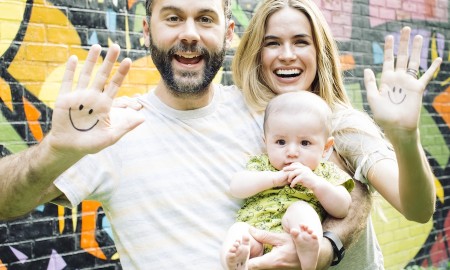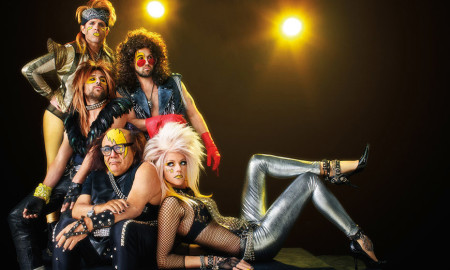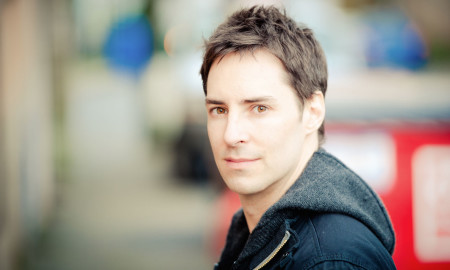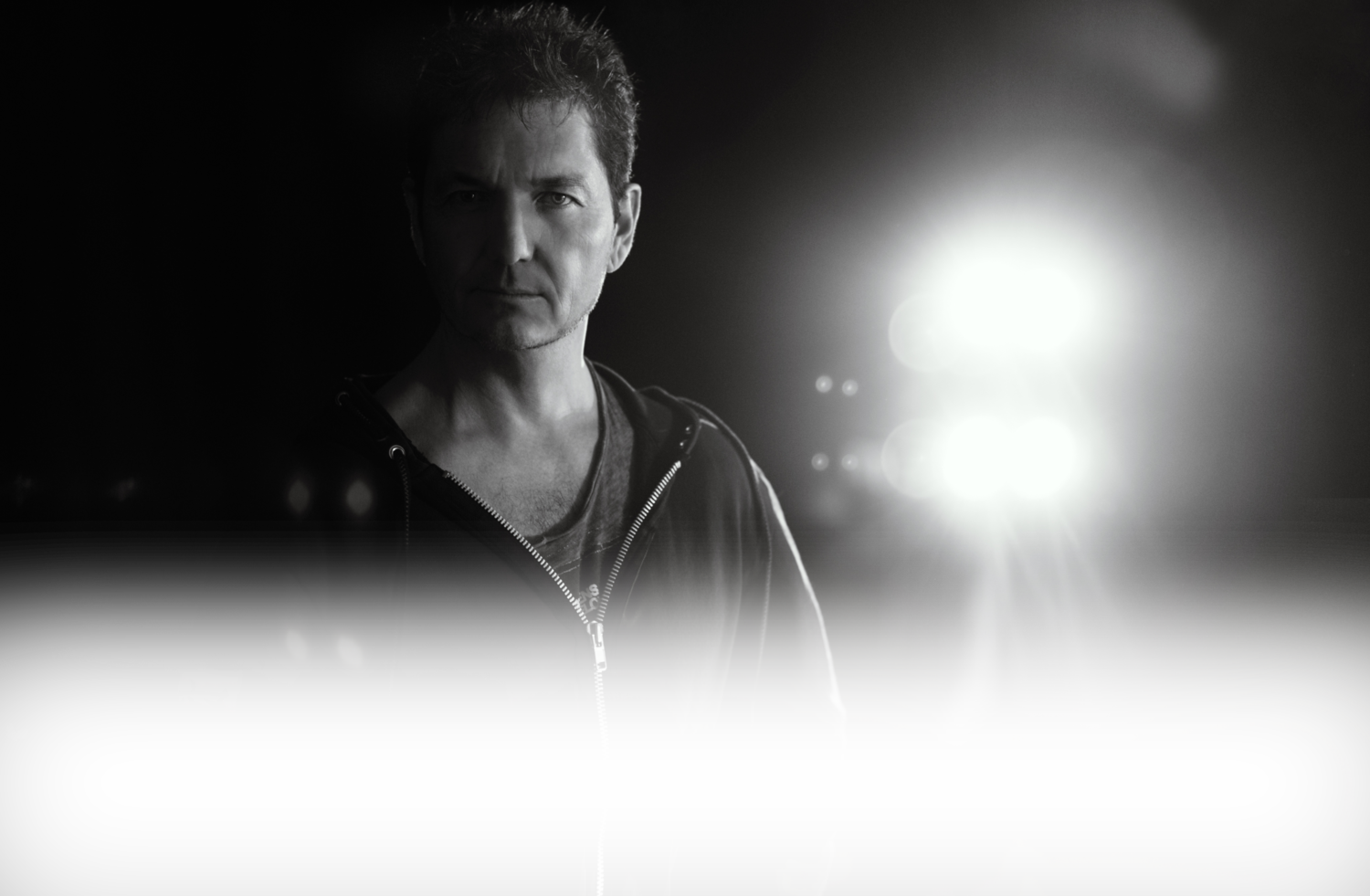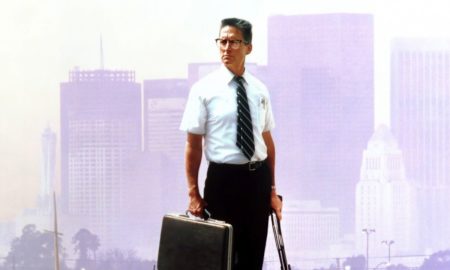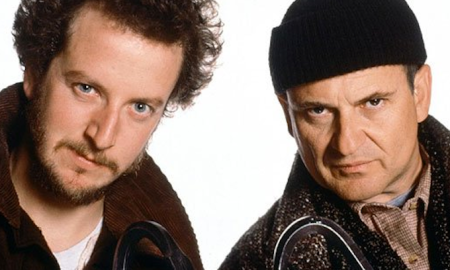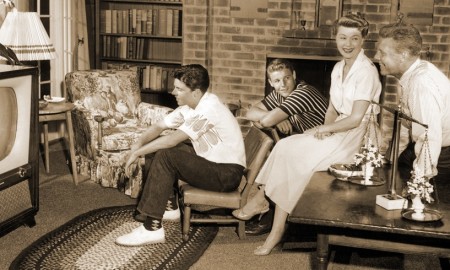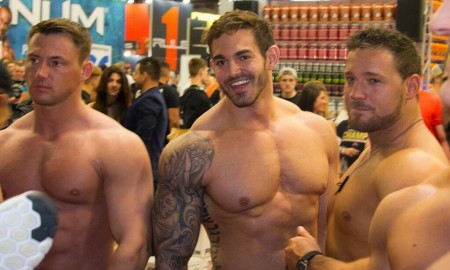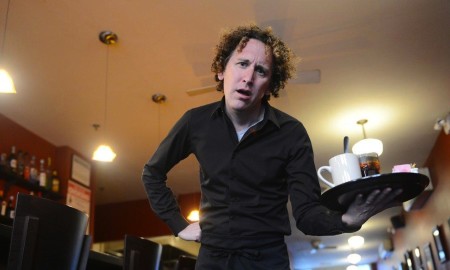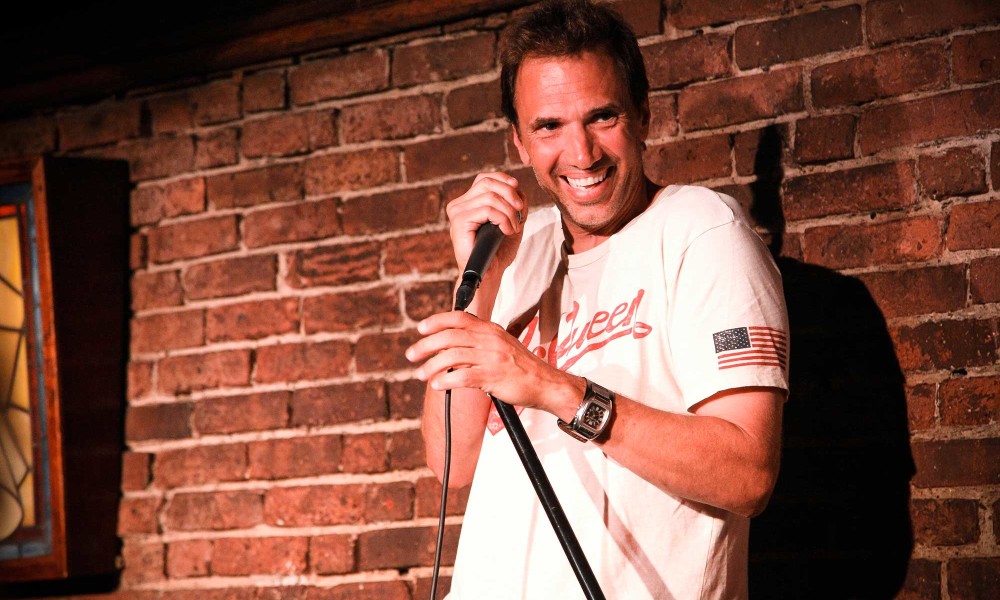

They’ll never admit it, but there are still people on this planet who couldn’t tell you what a podcast is — or does.
Let’s let Paul Mecurio, one of the industry’s most successful podcasters, school us on these long-form/free-form, recorded conversations that you can play on any digital device at your command. There are thousands of them, many of which you can download from itunes or directly from podcaster’s websites.
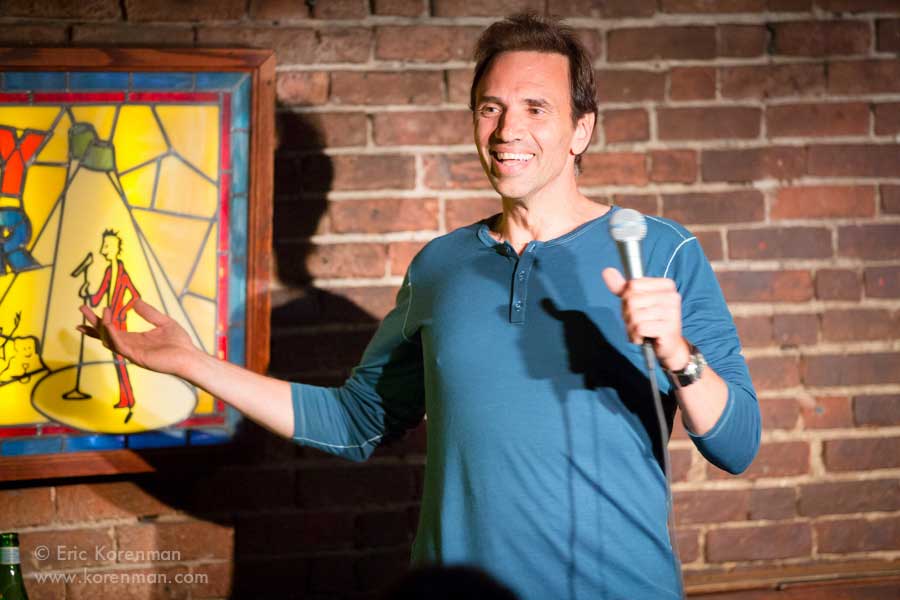 “A podcast is having a conversation and letting it go wherever it wants,” says the Rhode Island native and former Wall Street lawyer (yeah, now there’s a conversation starter — more about that later). Paul’s new podcast, Adam Carolla Presents: Paul Mecurio – 2 Chairs and a Microphone, is considered one of the better podcasts, and that’s coming from his A-List guests themselves.
“A podcast is having a conversation and letting it go wherever it wants,” says the Rhode Island native and former Wall Street lawyer (yeah, now there’s a conversation starter — more about that later). Paul’s new podcast, Adam Carolla Presents: Paul Mecurio – 2 Chairs and a Microphone, is considered one of the better podcasts, and that’s coming from his A-List guests themselves.
If they’re done well — and not all of them are — then you really have something going on between your ears: an enriching, often memorable and enlightening exchange. It’s the one digital thing that’s lacking from the rest of the digital wasteland: substance.
For those of you who have had your attention span whittled down to a nub, and think in terms of 140 characters and LOLs, you may want to consider expanding the ol’ noggin with a podcast or three.
“The thing I love about podcasting is that it’s in-depth stuff with some great people,” Paul says. “It gets into your brain because you are really discussing something deep. You really learn about what motivated them to do what they do.”
The in-depth stuff with the great people Paul is talking about includes another Paul — this one with the last name of McCartney — along with Jay Leno, Stephen Colbert, Sugar Ray Leonard, Terry Gilliam, Bob Costas, New York Times columnist Neil deGrasse Tyson and MTV president Doug Herzog, among others.
In the course of conversation, guest Paul McCartney said, “That’s a great question. No one has ever asked me that before.” You’ll have to listen to find out exactly what was asked, but there you go and there you have it. Any questions?
So what makes this Mecurio fella ask the questions that impress the icons?
“I really do research on my guests,” he says. “I feel like it’s incumbent upon me to have some kind of strain of conversation that they haven’t had before, instead of asking the same four questions that everybody asks. Jay Leno talked about his desperation and how that fuels him, his desperation not to fail, his desperation to succeed.
“I have some of that too, so it winds up being more like two guys having beers together than a formal interview. We had a lot in common, which I didn’t expect going in. If I only had five or ten minutes, this conversation never would have happened. You need to let these things breathe. Time is good if you use it right; you can also squander it.”
Paul knows time: it’s all about timing. His adult life was set for life: He was a successful Wall Street lawyer with a girlfriend. Yet something was calling him, and it wasn’t the stock ticker.
“That was my life, and it was evolving over a year or two where I was flirting with this thing,” he says about the call of comedy while holding down a high-level but soul-crushing 9-5 job. He gave them the stand-up routine at night, nosediving in dives.
“I thought I was going to have a nervous breakdown because I was hiding it from everybody,” he says. “My girlfriend at the time — now my wife — didn’t know. When I told her, she said, ‘I thought you were cheating on me, because you were coming home reeking of beer and cigarettes.’ There was a stabbing at the nightclub one night, and the guy who got stabbed threw all these blood-stained napkins at me, and they stuck to my shirt, and my wife didn’t know how I got blood on my shirt. It was like a sitcom.”
A sitcom without the laughtrack, though. This kind of dichotomy doesn’t tickle.
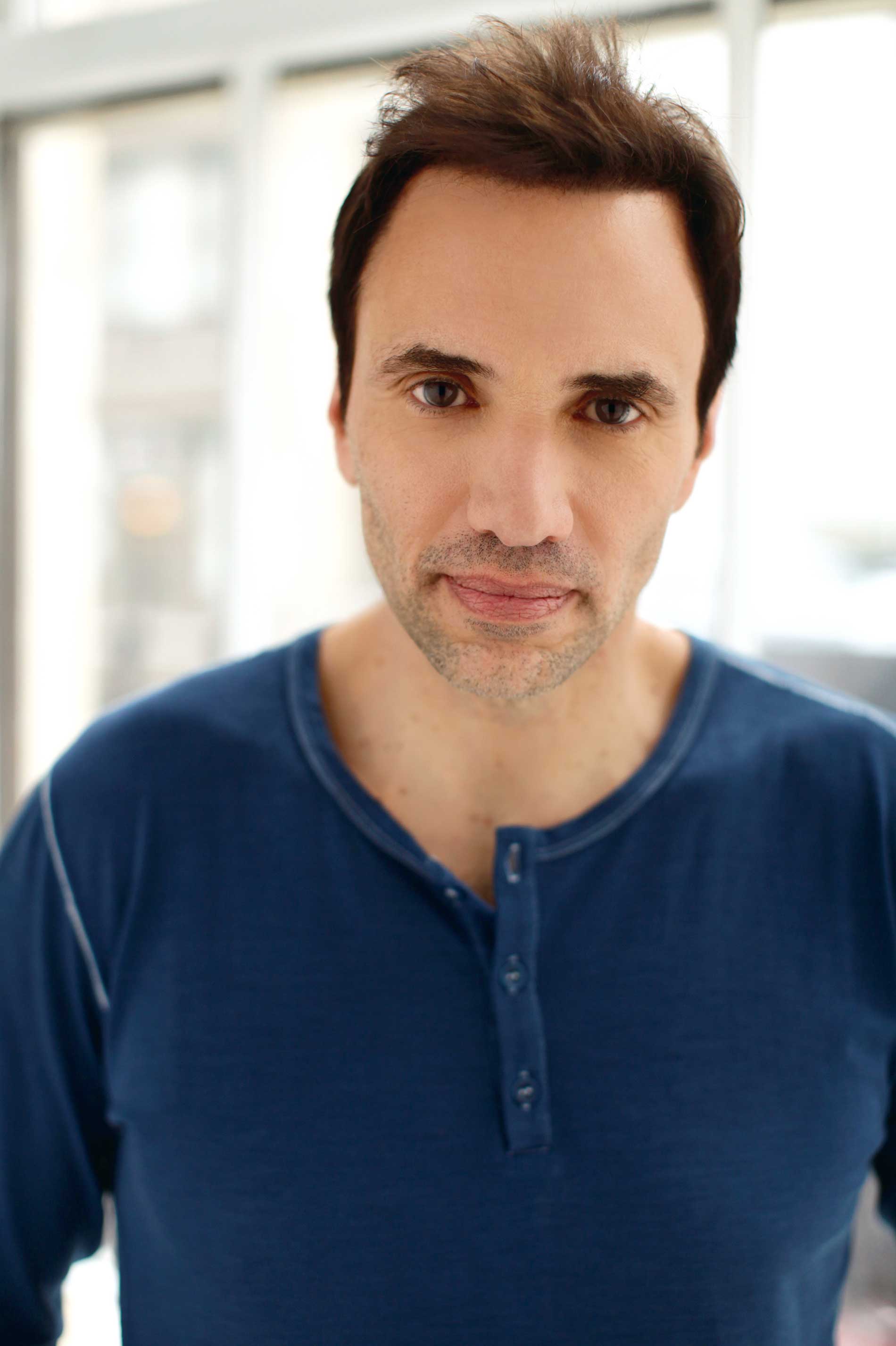 “I was really lost,” he says. “Should I do standup? Should I do Wall Street? It was a hard decision and I was stuck in the middle of it, and then my father died unexpectedly of a heart attack. That’s when I decided that I had to really shit or get off the pot, really go for it. I sold my two-bedroom co-op in the city. Sold my suits and ties. Moved to a rooming house outside [LA] with two ex-cons, two recovering addicts, and a 300 lb. phone sex operator who sold diet products. We all shared a kitchen and a bathroom, and that’s how I started to pursue this. When I started doing standup, I kept thinking, ‘what have I done?’ I kept getting stiffed on money. It was really a horrible existence. I started to panic.”
“I was really lost,” he says. “Should I do standup? Should I do Wall Street? It was a hard decision and I was stuck in the middle of it, and then my father died unexpectedly of a heart attack. That’s when I decided that I had to really shit or get off the pot, really go for it. I sold my two-bedroom co-op in the city. Sold my suits and ties. Moved to a rooming house outside [LA] with two ex-cons, two recovering addicts, and a 300 lb. phone sex operator who sold diet products. We all shared a kitchen and a bathroom, and that’s how I started to pursue this. When I started doing standup, I kept thinking, ‘what have I done?’ I kept getting stiffed on money. It was really a horrible existence. I started to panic.”
Adding to the panic was an audit, once the resume took a 180-degree turn.
“I got audited by the IRS because they thought I was hiding money,” he says of his one-year income detour from Wall Street to comedy clubs. “I went back to Wall Street for a while, because I thought I really made a mistake, and I swore off comedy. But I went back to comedy, like an alcoholic looking for a drink. I thought I picked it, but it picked me.”
Following that drummer’s beat is not always an easy step.
“Everybody was right,” he says. “It was a crazy thing to do. But I just didn’t want to look back and say, ‘I should have.'”
It didn’t work out so badly though. From stand-up, Paul segued into comedy writing. He landed on the writing team for the The Daily Show, and won the Emmy Award for Outstanding Individual Achievement In Writing, as well as a Peabody Award for Excellence in Broadcasting.
Then, the evolution to podcasting.
“I really like talking to people,” Paul says. “I love talk shows, and they’re fine, but they’re almost always really short interviews, because that’s the way they are structured. You don’t really get to know the person. They’re either promoting a movie or their book or their music. And you’re just starting to get into something good and then they go to commercial. I love talking to musicians and learning about their creative process. I got tired of hearing musicians being interviewed and being asked, ‘What’s touring like?’ Or ‘Why did you make the album?’ Nobody ever talks about the [creative] process.”
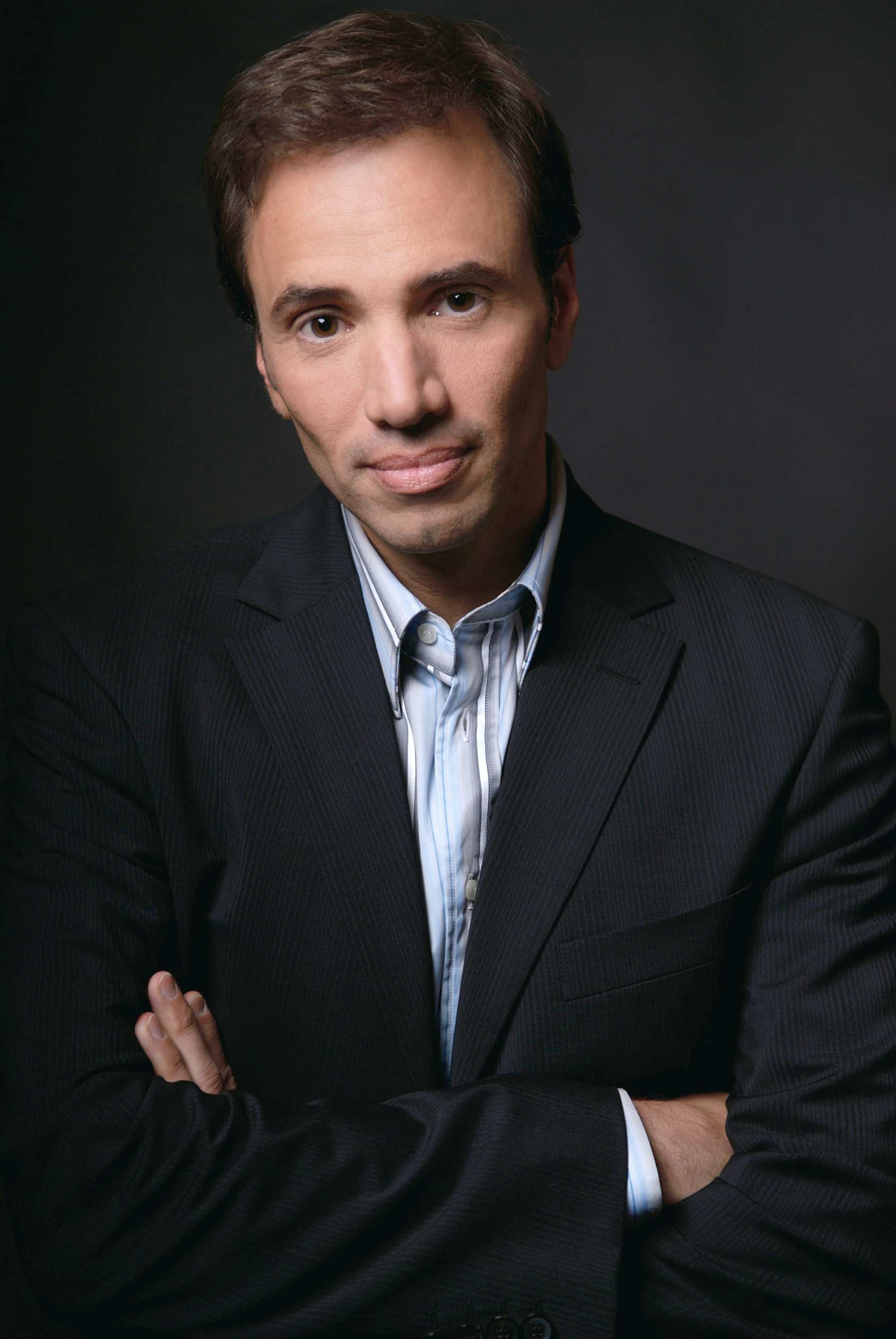 That’s why it only makes sense to team Paul with the world’s most successful podcaster, Adam Carolla and Adam’s pirate ship, Carolla Digital.
That’s why it only makes sense to team Paul with the world’s most successful podcaster, Adam Carolla and Adam’s pirate ship, Carolla Digital.
“Adam has the biggest network and he’s a really nice guy too,” Paul says. “He’s super straight up and supportive. The whole crew are really good guys. [The collaboration of Adam and Paul] was pretty grass roots and organic, which is the best way.”
Paul brings to the podcast yet another of his nine lives, as the seasoned stand-up comedian and award-winning comedy writer. Yet, like most comedians, it’s not all about keeping your sunny-side up and talking like a cheerful press release. Luckily, he brings that to the conversation.
“The entertainment business, the talent side, is really set up for you to give up,” he says. “Getting rejected for no apprarent reason, people get flaky. They don’t call you, they bullshit you. It’s a test of fortitude as much as talent. You crash through one wall and then hit another one. I think that’s why people give up after a while.”
Paul, though, keeps on keeping on, because his take on The American Dream involves the dark side as well, as his own life and career path have shown him.
“Why does Steve Jobs have so many books and movies written about him?” Paul asks. “Not because he was successful, but because he failed. He was like a phoenix rising from the fire. I think he is more typical of The American Dream and what one goes through in achieving the American Dream. It’s all about how you bounce back from those failures.”


